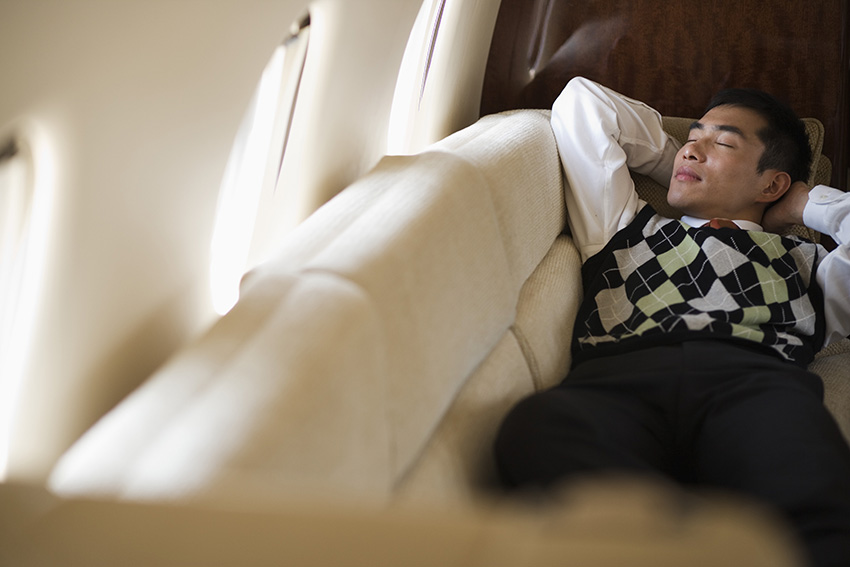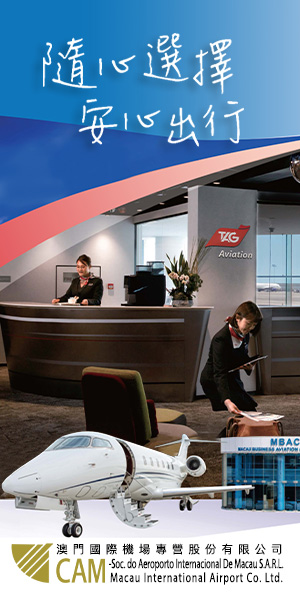The year was 2005; Aviatrade Asia attended the very first dedicated private jet (bizjet) show in China. At the time, Hongqiao airport in Shanghai had no private jet facilities and as I remember, we were escorted, amidst unbelievably tight security, onto a usually unoccupied area of the airport’s ‘airside apron’where we mingled with a crowd of not more that a couple of hundred people and a mere handful of private jets that included Gulfstream, FalconJet and Bombardier aircraft.
Thereafter and until quite recently, we witnessed unprecedented China growth, both economically and in terms of bizjet ownership. The intervening few years, during which the manufacturers ‘made hay while the sun shined’, witnessed China buyers buying brand new aircraft by the hangar-load (more on the hangar availability later in this article).
Fast forward…
Today’s private jet ownership and operating environment in China is showing surprising weakness, both in terms of acquisition demand and aircraft retention. Unrealistic re-sale expectations are also creating the necessity for some unwelcome and uncomfortable business decisions.
We can all pretty much understand the reasons for the present weakening in China bizjet demand….economic slowdown, bizjet ownership sensitivity, buyer saturation (probably temporary)…etc. However, the issues now facing numerous China bizjet owners who wish to sell their aircraft are causing some consternation.
It appears that when these bizjets were acquired (brand new), there was somehow a notion that they would maintain their acquisition value into the foreseeable future and that the operating costs would be an ‘afterthought’. These two misperceptions are probably amongst the major reasons for the present dilemma in the China bizjet market.
In China, the most common reasons for a bizjet acquisition seem to be “image”, personal travel and potential for profit in charter operation. These rationales are understandable and justifiable…but only if the downside risk is also understood, for all scenarios.
The China Aircraft Re-Sale Market Situation
There is self-evidently a bizjet market correction under way in China. The dramatic upswing in pre-owned aircraft available for sale from China is not being counter-balanced by a similar increase in acquisitions (or planned acquisitions). This phenomenon cannot even be explained by the (typically) natural replacement/upgrade process. This is because, historically, China buyers do not appear to have any strategic succession plan for such assets, mainly because bizjets are a relatively new asset class in Asia in general, and in China in particular.
There are currently an estimated four hundred and fifty active bizjets in Greater China (and China-owned bizjets in offshore registries). The actual number for sale is somewhat difficult to quantify, but the real number includes bizjets that are quietly for sale (this is not a solely Greater China phenomenon) and is estimated at around fifteen percent.
Compare this situation to the US (the world’s largest bizjet fleet); The US operates some fourteen thousand bizjets, of which one thousand five hundred are currently for sale. We should also note that the US is experiencing a continuing weak market for bizjet sellers…this does not bode well for the China re-sale marketplace, when exporting abroad.
Bizjet Re-Sale Issues
There are a number of issues that are currently inhibiting the free flow of pre-owned aircraft from China;
Unrealistic sale price expectation
China bizjet owners are attempting to sell at, or near, the acquisition cost. This is especially true of very new aircraft that are coming for sale (less than one year old) This is not possible in today’s global marketplace because of the generally weak international aircraft sales environment.
Slightly older aircraft, if ‘B’ registered, have generally been subject to the 22% total import tax. If this tax is not fully amortized, the result will be a sale price potentially far below the money owed on the aircraft. A fair number of China aircraft owners are attempting to sell internally (in China), thereby potentially neutralizing the tax bite for both seller and buyer. However, the present economic climate in China is not favoring (in the near term) an active internal bizjet re-sale marketplace.
Bizjet buyers in China, when buying new aircraft, have a tendency to ‘sign up’ for all of the options (upgrades) on offer from the manufacturers. Then, much like buying a new car that has many options and when being re-sold, the value of those options drops dramatically after the aircraft has been in service for some time. Therefore the aircraft resale value will drop by a disproportionate amount.
Lastly, in our experience, China bizjet owners are generally unaware of the aircraft resale market movements and ‘real world’ valuations outside of China. This situation fosters anomalies in the perception of aircraft resale activity and associated price expectations.
Technical Challenges
Because the bizjet market in China is still in its infancy, the domestic technical expertise and support are not yet on par with other parts of the world. This leads to hesitation amongst potential foreign buyers who will choose a more predictable and quantifiable path to purchase. This, in turn, precludes China bizjet owners from participating in a broader marketplace and thereby enhancing sale prospects.
Also, it is commonly known outside of China that very few of the China bizjet fleet resides in a hangar when not in service. This state of affairs is all very well where the commercial fleets are concerned because the commercial jets spend so little time on the ground (relatively speaking). Therefore, an aircraft that sits unprotected for long inactive periods will inevitably suffer systems problems and corrosion issues. This situation can be easily identified when comparing flight hours to time in service. Inactivity in an unprotected and corrosive environment is a recipe for major aircraft problems.
There are other contributing factors that create issues for China-based aircraft sellers, such as record keeping and inspection integrity. Whilst we fully appreciate that every effort is being made to comply with international standards and practices, the reality is that there are weaknesses in the supervisory system that can also hinder the eventual sale potential of an aircraft from China.
Remarketing Control and Representation
The remaining factors affecting the re-sale prospects for China-owned aircraft are very important;
Whenever Aviatrade Asia is made aware of a China aircraft seller, we are usually contacted by at least three or four different people (within China) who claim to have ‘a friend’who wants to sell a particular bizjet.
This situation always causes confusion because no buyer wants to deal with multiple representatives during a complicated asset sale. Furthermore, Aviatrade Asia also hears differing prices and differing deal parameters…none of which contribute positively to the eventual sale outcome for a China bizjet seller. To add to the confusion, the legal documentation is, more often than not, simply copied from a prior aircraft deal. For example; everyone in the China bizjet transaction world knows the acronym ‘LOI’….however, very few deal participants know the proper way to determine the appropriate content of an LOI, or its real significance.
Bizjets are available is extremely finite numbers, (unlike real estate or other expensive assets). Therefore the re-sale marketplace is similarly finite and information passes quickly amongst those entities that are familiar with the market structure and international sale conditions.
Best Re-Sale Solution
In order to facilitate the most efficient and expeditious sale of a ‘B’ registered aircraft, Aviatrade Asia recommends that the owner ‘exports’ the aircraft to an offshore registry, the US being the easiest and most common, however there are many acceptable options such as Bermuda, BVI and Isle of Man.
The aircraft should be flown to the nearest factory-authorized maintenance facility pending a sale. This ensures that all maintenance is performed prior to sale and potential buyers will have ready access to the aircraft in more familiar surroundings.
Apparently, many of the bizjets in China are under-utilized and therefore the potential for inconvenience if an owner decides to export prior to sale is far outweighed by the prospect of an accelerated sale in a freely active marketplace.
Aviatrade Asia recommends using the services of an internationally qualified and experienced consultant in order to conduct the export, pre-sale and sale processes.
Conclusion
As the old saying goes….”the devil is in the details” and is especially true with an expensive bizjet in a complicated international sales arena.
Clearly and most encouragingly, China business and private jet aviation has taken flight and is here to stay, albeit with some not unexpected turbulence along the route of flight…as the sign in the aircraft cabin always flashes “fasten your seatbelts”


